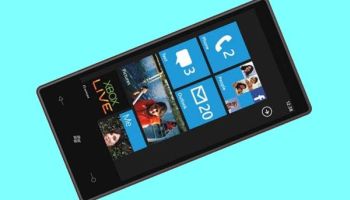It will be increasingly nervous times for executivies at both Nokia and Microsoft, after a report from Gartner found that Redmond’s share of the global smartphone market continues to decline.
The research firm pegs Microsoft’s share at 1.6 percent for the second quarter of 2011, down from 4.9 percent a year ago. It trails Google Android with 43.4 percent, Nokia’s Symbian with 22.1 percent, Apple iOS with 18.2 percent, Research in Motions’s BlackBerry franchise with 11.7 percent, and Bada – Samsung’s own mobile OS – with 1.9 percent.
RIM and Symbian also faced significant declines over the past year.
Nokia of course has agreed to abandon Symbian and another mobile operating system, MeeGo, in favour of Windows Phone. Those Microsoft-powered devices are expected by the end of 2011, but it remains an open question whether the new platform will halt or reserve the Finnish company’s market-slide.
Overall Declines
Other analyst firms have traced Microsoft’s smartphone-market tumble over the past several quarters. Research firm comScore, for example, recently estimated that Microsoft smartphones declined from 7.5 percent to 5.8 percent of the market for the three-month period ending in June. That included both Windows Phone and the company’s more antiquated Windows Mobile platform, which is being phased out.
 Although Microsoft routinely declines to offer hard sales figures associated with Windows Phone, the Seattle Post-Intelligencer estimated Microsoft’s possible revenue from Windows Phone at less than $613 million (£380m). That figure came from subtracting Xbox 360-related revenue – some $8.103 billion (£5bn) from that of its overall Entertainment and Devices Division, leaving $613 million (£380m) split between Windows Phone and a variety of much smaller projects such as Zune and Surface.
Although Microsoft routinely declines to offer hard sales figures associated with Windows Phone, the Seattle Post-Intelligencer estimated Microsoft’s possible revenue from Windows Phone at less than $613 million (£380m). That figure came from subtracting Xbox 360-related revenue – some $8.103 billion (£5bn) from that of its overall Entertainment and Devices Division, leaving $613 million (£380m) split between Windows Phone and a variety of much smaller projects such as Zune and Surface.
Microsoft’s hope is that its upcoming “Mango” update, due to final release sometime this fall, will spur greater consumer adoption. Samsung, HTC, LG Electronics and Nokia have all committed to building new Windows Phone devices preloaded with Mango, along with Acer and ZTE. Some 500 new elements to the update include expanded functionality for the Xbox Live and Office hubs, new multitasking abilities, and Bing deeply baked into the user interface.
Tough Ask
However, Microsoft faces considerable competition on a number of fronts: in addition to the growing ranks of Google Android smartphones, Apple is expected to release its next-generation iPhone in either September or October. And sometime next year, RIM will release a series of QNX-powered “superphones” that it hopes will make an aggressive market play.
In the meantime, consumer love of smartphones showed little sign of abating.
“Smartphone sales continued to rise at the expense of feature phones,” Roberta Cozza, an analyst at Gartner, wrote in an 11 August statement. “Consumers in mature markets are choosing entry-level and midrange Android smartphones over feature phones, partly due to carriers’ and manufacturers’ promotions.”




